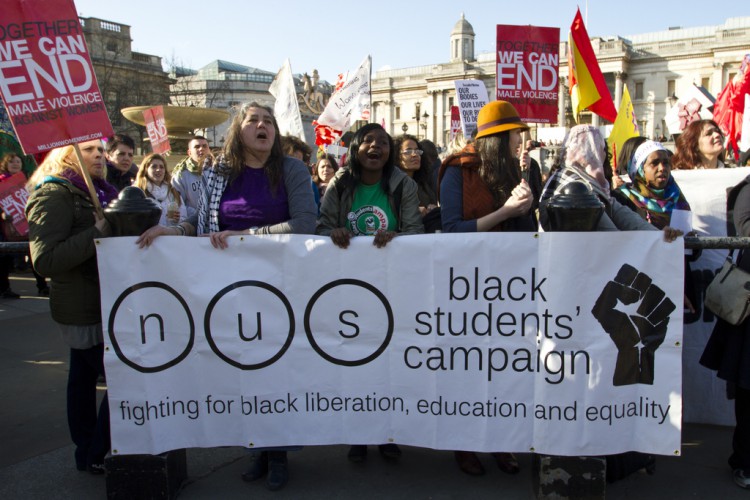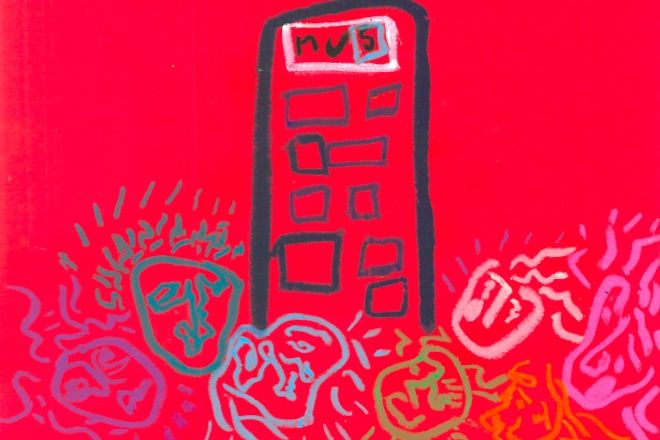
Last Wednesday, Malia Bouattia – current NUS Black Students’ Officer, co-founder of the Black Women’s Forum UK and present leader in the realm of self-organised student activism – was elected President of our National Union of Students. This makes her the first woman of colour (WoC) to hold the position in all 94 years of the organisation’s existence.
Malia won with 372 votes out of a total 731 at this year’s National Conference, and the victory is one significant and beneficial for students of all identities. But for me, as a woman of colour, and especially for me as a political woman of colour, this win is monumental.
Being surrounded by people whose fires were ignited by the same flames as mine was truly momentous
The first time I heard Malia speak in person was at the NUS Winter Black Students’ Conference. The conference provided me two of the most inspiring days of my life; being surrounded by people whose fires were ignited by the same flames as mine was truly momentous. I found myself overwhelmed with a feeling I had not known I was missing, as a visibly political woman of colour: a feeling of safety.
I don’t think enough noise is made about the plights of being a woman of colour within the student movement at all. For many of us, politics is not something we particularly want to be involved in but instead feel as though we must be, because we belong to communities that are literally undergoing widespread, state-sanctioned and unremitting assault.
But, honestly, the current climate of student politics makes it a pretty hard space for us girls of colour to want to occupy in the first place.
To be a woman of colour within the student movement is to be consistently derailed, silenced and exhausted. It is an experience of dedicating time and energy to the act of screaming, then seeing your noise disintegrate into a void but continuing to scream anyway because your screaming is a matter of survival. You cannot physically stop screaming because now your eyes are too open to ever be capable of fading into sleep again: the comfort and ignorance of this sleep is a mere memory and never to be regained. You can literally see your friends slipping away, hear the “there she goes agains”, feel the eyes that glaze over in conversation – your fervour and urgency is methodically quashed by an overwhelming combination of irritation and indifference.
To be a woman of colour within the student movement is to be consistently derailed, silenced and exhausted.
We may be able to bring this down to the fact that, as women of colour, people find comfort in your silence. I think I knew this inadvertently growing up, which is why I endeavoured to become as small and as invisible as I possibly could. Things like having a presence on social media and even walking alone into the 6th Form block at school were notions that used to frighten me, because they both required a visibility I had spent my teen years fiercely evading. I think back to childhood videos of boldly-dressed gap-toothed me singing in front of a gathered crowd of smiling family and find an inter-generational affinity with my withered down foremothers: the brown female reality of being born big and beaten into insignificance.
So when you do find voice and decide to commit to the loud act of entering student politics, you step out of the thorn-brimmed box assigned to you at birth and instantly are met with the most violent wave of resistance. Automatically this ‘side’ of you is unsexy and, knowing that, as a woman, your prime value lies in your attractiveness, the knowledge that something so important to you is deemed unattractive is a hard weight to shake.
Automatically this ‘side’ of you is unsexy
The weight becomes heavier when you feel the matter too “petty” and “insignificant” to give time to: it becomes another reason for establishments not to take you seriously, another way you reveal just how woman you really are. Such talk is high school girl nonsense in the face of the multiple neo-imperialist new-age genocides you should be talking about instead.
And herein lies the crux of the matter – it’s like people instantly forget your humanity as soon as you become vocal. Automatically, you are fair game to be abused and viciously challenged – “it’s your fault if you do not develop hard skin” is a line that I am all too familiar with. Automatically your politics become the sole signifier of your identity: they are the first and only thing people want to talk to you about – not so much to hear your voice but rather to voice theirs as they undermine you and attempt to regain some of the power over you that they feel they’ve lost.
When you become a caricature for the movement and cease to be a human you are consistently over-worked and disrespected, because you no longer have scope to be fragile, because you are a warrior for a cause who does not cry over bad skin or bad grades. Ironically, as you enter the fight for your humanity to be recognised, you yourself suffer a dehumanisation that is incessant and wounding. And all of this not even mentioning your everlasting exasperation when you witness how your words are so much more valid and listened to when garnished with a male voice.
Malia’s win tells me that I deserve to be comfortable in any visibility I am afforded when I take up space
Through this struggle, my only lifeline has been the other women of colour I have both in my personal life and ones I see fighting online. This is why Malia’s win means so much to me, why her presence and survival yields such power, because implicitly it tells me that I deserve to be comfortable in any visibility I am afforded when I take up space. Voting in a woman of colour as the leader of our National Union of Students is the way I stand against my issues being an elective rather than compulsory. It’s the way I reject having to accept side-note status and violent belittlement through tokenisation. It’s the way I institutionalise my liberation, and make my Union as safe and representative a space as possible.
To all my fellow women of colour out there speaking, deconstructing, protesting and slaying, thank you for your courage, because it is what keeps me screaming. To fight out of love despite waves against you is the most human thing I know.







